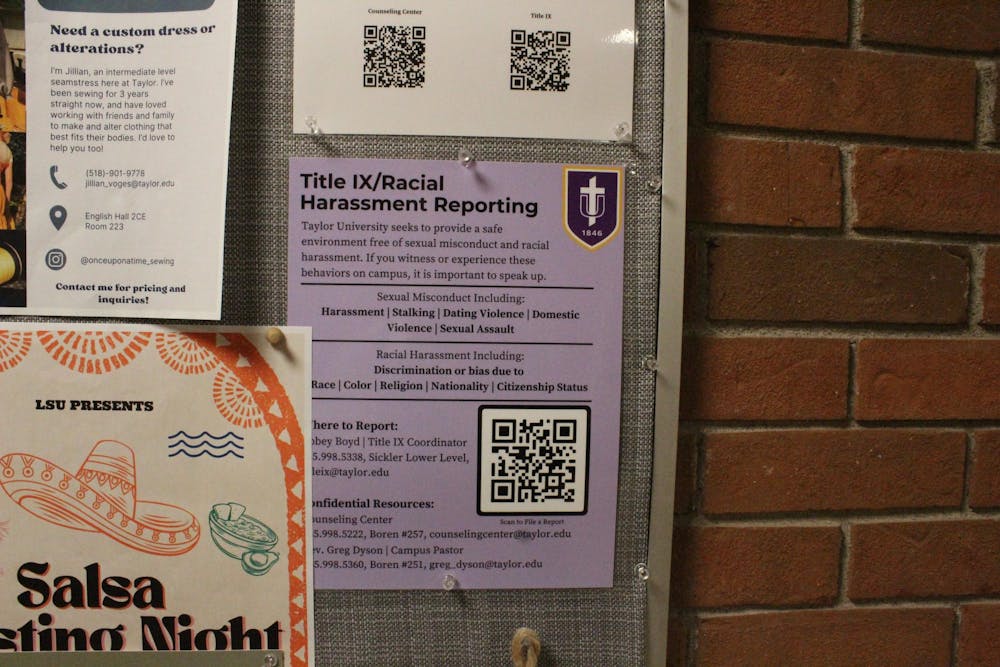On Title IX’s 50th anniversary, June 23, 2023, the U.S. Department of Education released proposed changes to the regulations. Now, institutions like Taylor University who receive any sort of federal funding wait for the U.S. Department of Education to release the Title IX ruling.
The Title IX policy is federally mandated based on anyone or institution who receives government funding, Abbey Boyd, human resource manager and Title IX Coordinator at Taylor University, said.
Students at Taylor receive federal funding through Pell Grants, given by the government, based on a student’s filing of the Free Application for Federal Student Aid (FAFSA), Robert Sommers, executive director of financial aid, said. The federal aid grants also include work-study — student employment — and loans.
“So because we (Taylor University) have students who are on federal work-study, we receive money from the government - and therefore, we're obligated to implement a Title IX, sexual harassment policy - and to respond to allegations of harassment in a very specific and methodical way as articulated by the Department of Education,” Boyd said.
The Title IX amendment policy process begins with the U.S. Department of Education proposing changes to the policy. After the public provides comments, the department uses the feedback to make an assessment which will be rolled out, Boyd said.
Boyd said that Title IX provides the parameter for addressing inappropriate behavior and as well as any kind of harassment or misconduct that would affect a student’s or faculty’s right to participate in an educational program.
The last time Title IX underwent changes was during Trump’s administration, according to EAB, an education advisory board.
Each administration can have slightly different views on Title IX. They can choose to not change regulations, Boyd said.
Currently, the Title IX policy is enacted only when someone files a formal complaint. However, one of the proposed regulations would require schools to respond promptly to all complaints of sex discrimination, according to U.S. Department of Education’s 2022 Proposed Amendments to its Title IX Regulations. Schools would also have the option of offering informal resolutions for addressing sex discrimination complaints.
Another of the proposed changes includes the protection of students identifying with the LGBTQI+ community.
“The Department, therefore, proposes that the current regulations should be amended to provide greater clarity regarding the scope of sex discrimination, including recipients’ obligations not to discriminate based on sex stereotypes, sex characteristics, pregnancy or related conditions, sexual orientation, and gender identity,” Federal Register Notice of Proposed Rulemaking Title IX of the Education Amendments of 1972 said.
This proposed regulation would extend to students in education programs or activities in elementary schools, secondary schools and postsecondary institutions.
In regard to sports, the proposed regulation would not permit schools to adopt a one-size-fits-all policy that categorically bans transgender students from participating on teams consistent with their gender identity, U.S. Department of Education's Proposed Change to its Title IX Regulations on Students' Eligibility for Athletic Teams said. Instead, schools would have the leeway to develop the criteria that serve important educational objectives, such as ensuring fairness in competition or preventing sports-related injury.
“Yet there is more work to do,” Biden said in a White House Statement. “As we look to the next fifty years, I am committed to protecting this progress and working to achieve full equality, inclusion, and dignity for women and girls, LGBTQI+ Americans, all students, and all Americans.”




